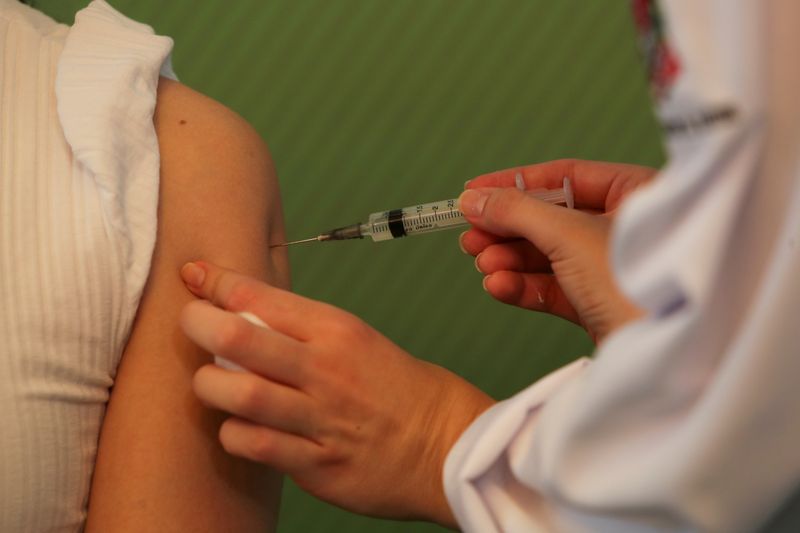BEIJING (Reuters) – Sinovac Biotech’s COVID-19 vaccine may not trigger sufficient antibody responses against a new variant identified in Brazil, a small-sample lab study showed.
The emergence of variants of the new coronavirus has raised concern that vaccines and treatments that were developed based on previous strains may not work as robustly.
Plasma samples taken from eight people vaccinated with Sinovac’s CoronaVac failed to efficiently neutralize the P.1 lineage variant, or 20J/501Y.V3, researchers said in a paper published on Monday ahead of peer-review.
“These results suggest that P.1 virus might escape from neutralizing antibodies induced by… CoronaVac,” researchers at the University of São Paulo in Brazil, Washington University School of Medicine in the United States, and a few other institutions said in the paper.
CoronaVac is being used in mass vaccination drives in countries including China, Brazil, Indonesia and Turkey.
Although the study suggests re-infection may occur in vaccinated individuals, the protection given by CoronaVac against severe COVID-19 may indicate other mechanisms in the human immune system, aside from antibodies, may also contribute to reducing disease severity, researchers said.
A Sinovac spokesman was not immediately available for comment. Chief executive Yin Weidong said in a programme aired by state-backed broadcaster CGTN on Thursday the company is “fully capable” of using current research and manufacturing capacity to develop a new vaccine against variants if necessary.
He also said the process would take much less time than it took to develop CoronaVac.
(Reporting by Roxanne Liu and Ryan Woo; Editing by Raju Gopalakrishnan)

























